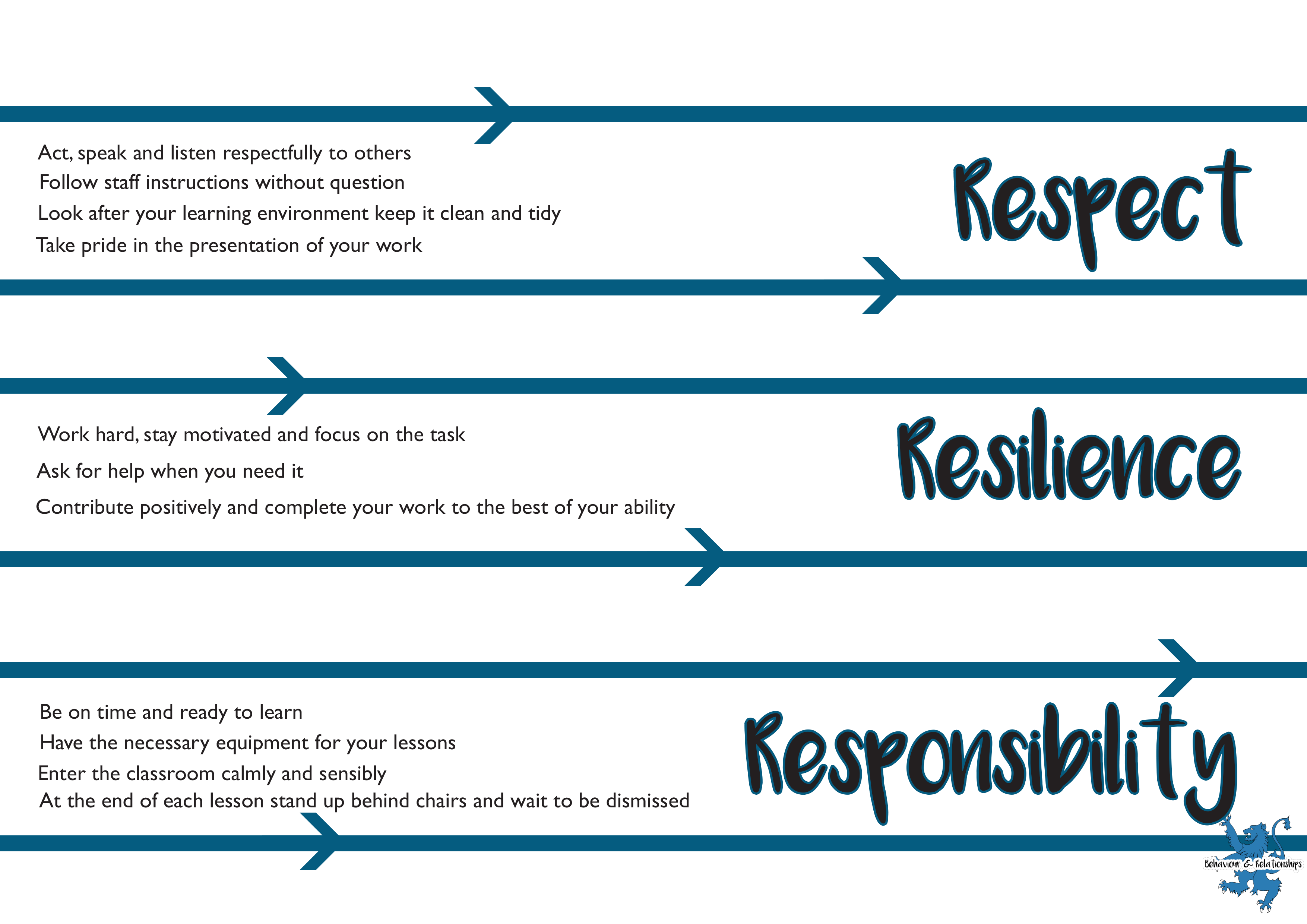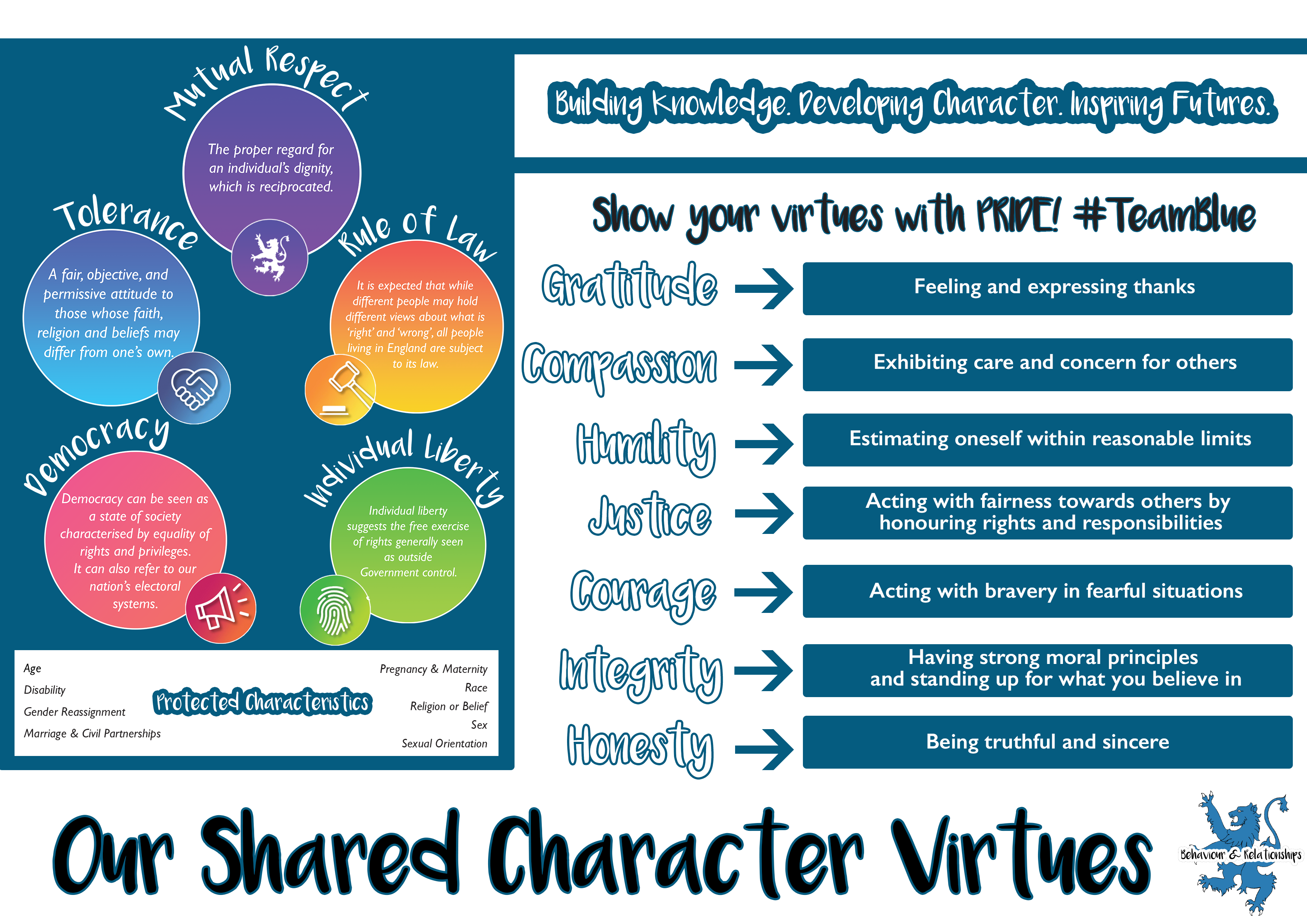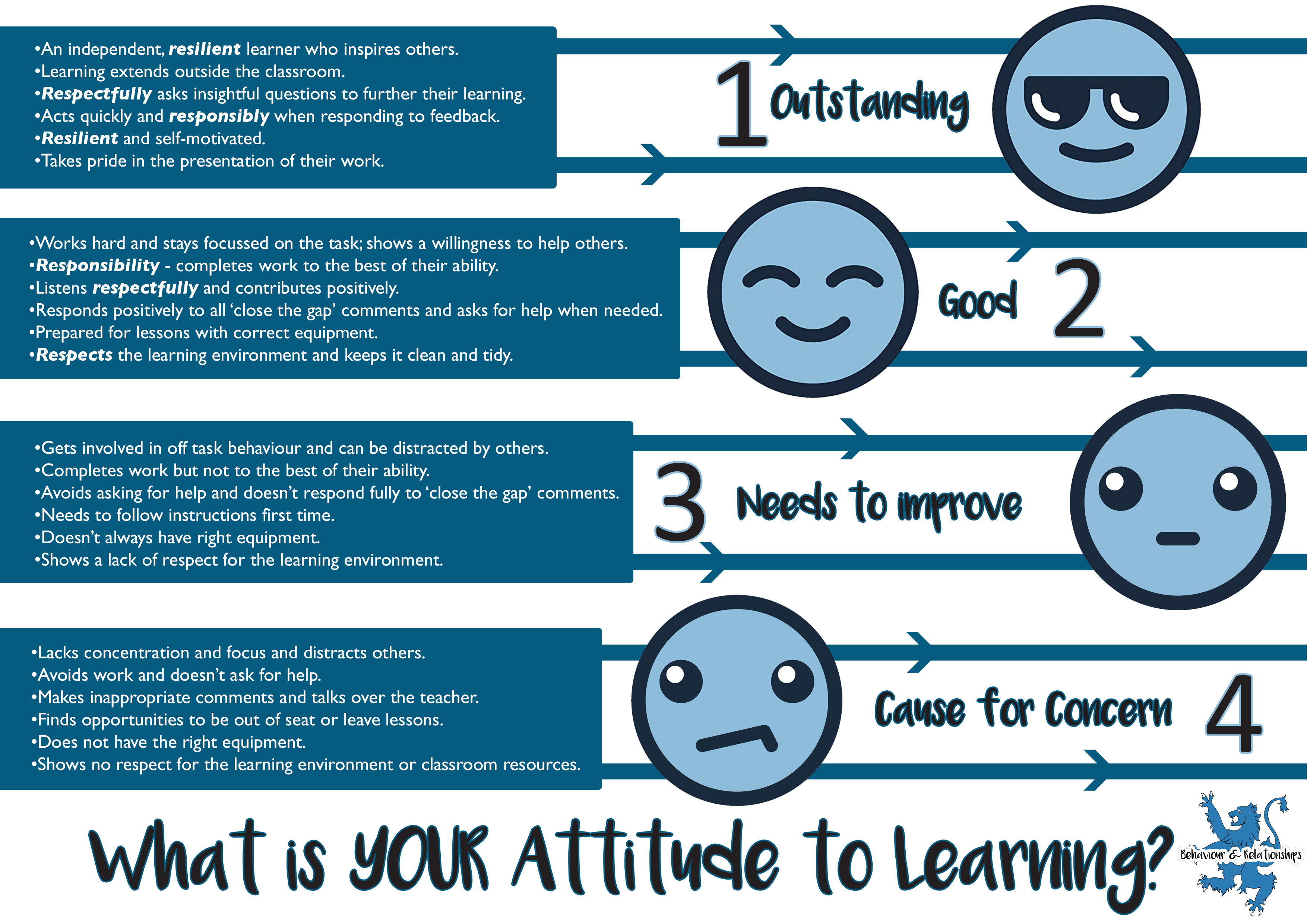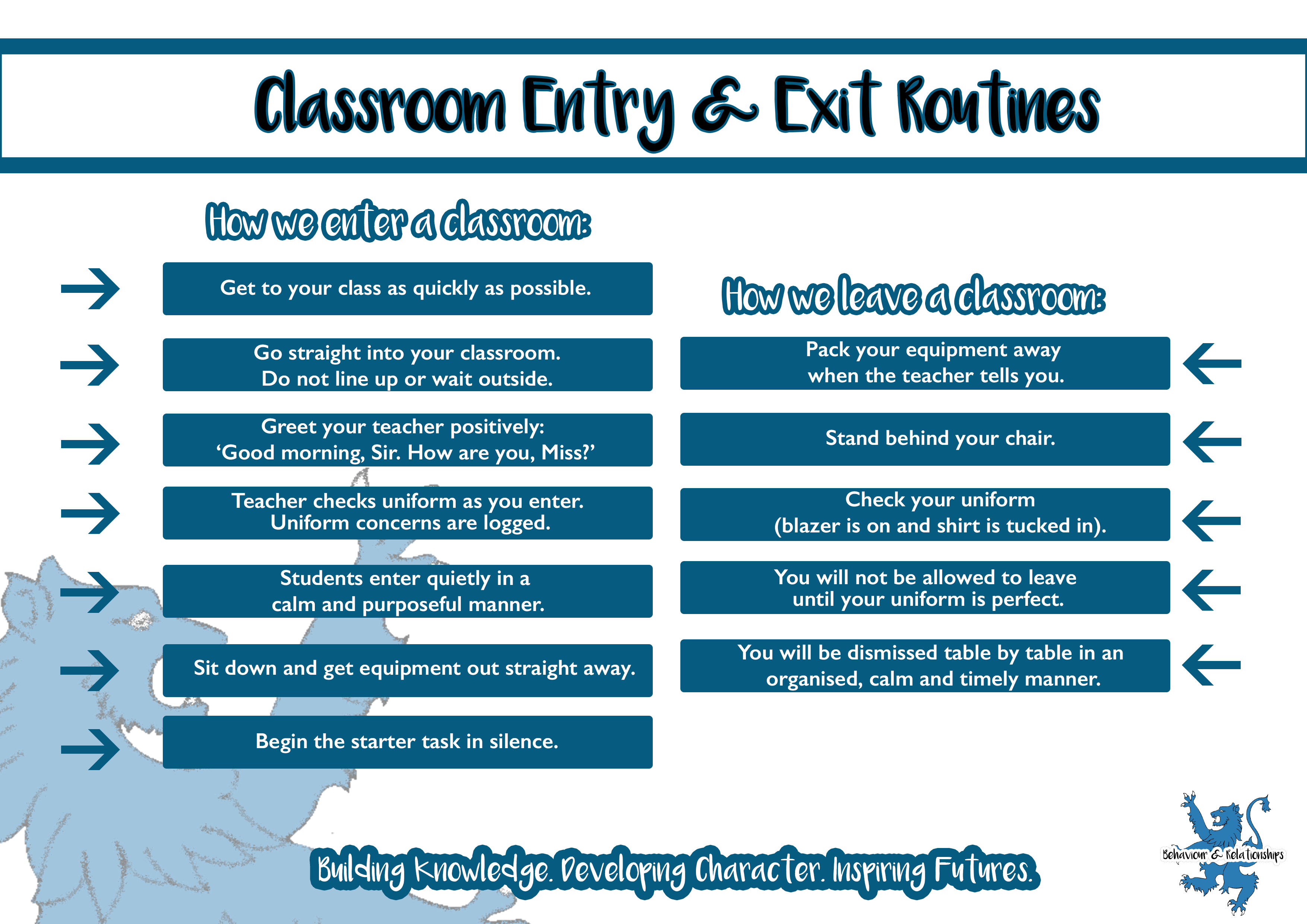We aim to create a culture where staff and students flourish in safety and dignity. This culture permeates through every aspect of school life. We believe good behaviour is central to a good education. At Charlton we manage behaviour well, therefore providing a calm, safe and supportive environment which children and young people want to attend, enabling them to learn and thrive. We proactively support students to behave appropriately by teaching explicitly what good behaviour looks like, through our behaviour and character curriculums with appropriate additional support for some students to reach the expected standard of behaviour. Where possible, this support is identified and put in place as soon as possible to avoid misbehaviour occurring in the first place.
We believe all students are entitled to a culture that promotes positive attitudes to learning so that we can nurture happy, healthy young people who have the knowledge, resilience, academic achievement, and strength of character to lead safe and successful lives in modern Britain. We aim to:
- Maintain a safe, caring, secure and orderly community in which the boundaries of acceptable behaviour are clear, shared and consistent, and reflect current and up to date Government legislation.
- Ensure that all students and parents/carers are clear about the school’s expectations and encourage positive relationships between school and home.
- Encourage a consistent, persistent and insistent approach to promoting outstanding behaviour and having clear responses to any behaviour which does not meet expectations.
- Ensure that all staff are well trained and therefore implement the behaviour curriculum and school routines consistently, fairly and with warmth and care.
The Behaviour Curriculum
At Charlton we believe that students must be taught how to behave. The knowledge, understanding and skills required must be taught and our high standards and expectations must be made explicitly clear. We define good behaviour as students developing positive habits that help them excel in school and prepare them for their next steps in education or employment. When students leave Charlton, they should have the skills to:
- Show Respect; Students show respect and are positive, caring and kind.
- Behave Responsibly; Students take responsibility for their actions behave responsibly.
- Be Resilient; Students are committed to their learning and resilient to setbacks.
- Behave Safely; students are able to keep themselves and others emotionally and physically safe.





